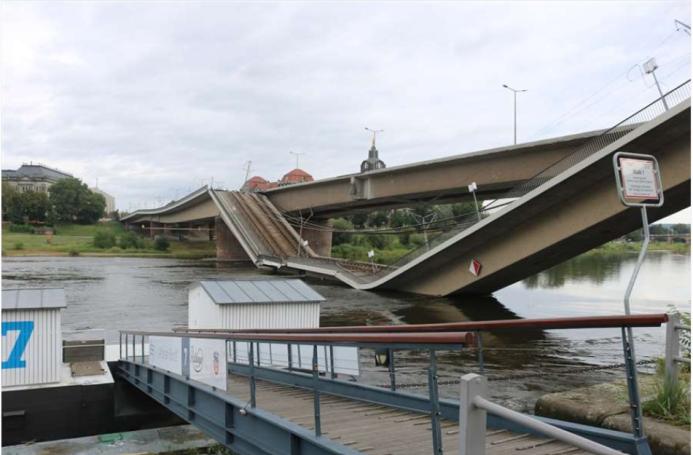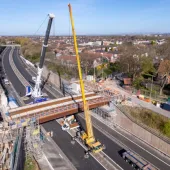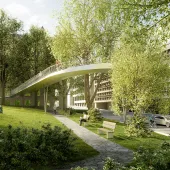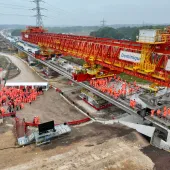Investigation after partial bridge collapse
An investigation has been launched after a section of the Carola Bridge, a key concrete structure in Dresden, Germany, partially collapsed in the early hours of Wednesday, 11 September 2024. The incident has led to significant disruption for both travel and local infrastructure.
The Carola Bridge, built between 1967 and 1971 by VEB Brückenbau Dresden during the former East Germany era, spans the River Elbe and is a pre-stressed concrete box girder structure. Measuring 32m wide, it carries four lanes of road traffic and two tram lines. A 100m section of the bridge carrying the tram tracks collapsed into the river, though no injuries were reported.
The collapse has raised concerns about the integrity of the remaining parts of the bridge. A statement from the Dresden fire department highlighted that other sections are at "acute risk" of further collapse. A one-metre gap has formed on the bridgehead on the Old Town side, and two 500m-long district heating pipes have been damaged, disrupting Dresden’s heating system.
Travel has been severely affected, with the bridge serving as a vital route for road traffic, trams, pedestrians, and cyclists. The city's tram system has been halted, and boat traffic on the River Elbe—including cargo ships and tourist vessels—has been suspended.
Dresden’s Mayor, Dirk Hilbert, expressed relief that no one was harmed in the collapse. "We can only be grateful that no one was harmed in this terrible event," he said. "The first step now is to ensure that any flooding on the Elbe does not pose a danger to people or other structures due to the debris."
The northern end of the bridge, which has a span of 58m, is known for being one of the longest pre-stressed concrete spans constructed in the former German Democratic Republic (GDR). While maintenance work has been ongoing on the road traffic sections since 2019, the collapsed tram section had been scheduled for renovation next year.
The authorities are investigating potential causes, with corrosion, particularly from chlorine exposure, being considered a contributing factor. The bridge collapse is currently being treated as an accident, with no signs of foul play.
Emergency crews were alerted just after 3am, only 18 minutes after the last tram crossed the structure.







